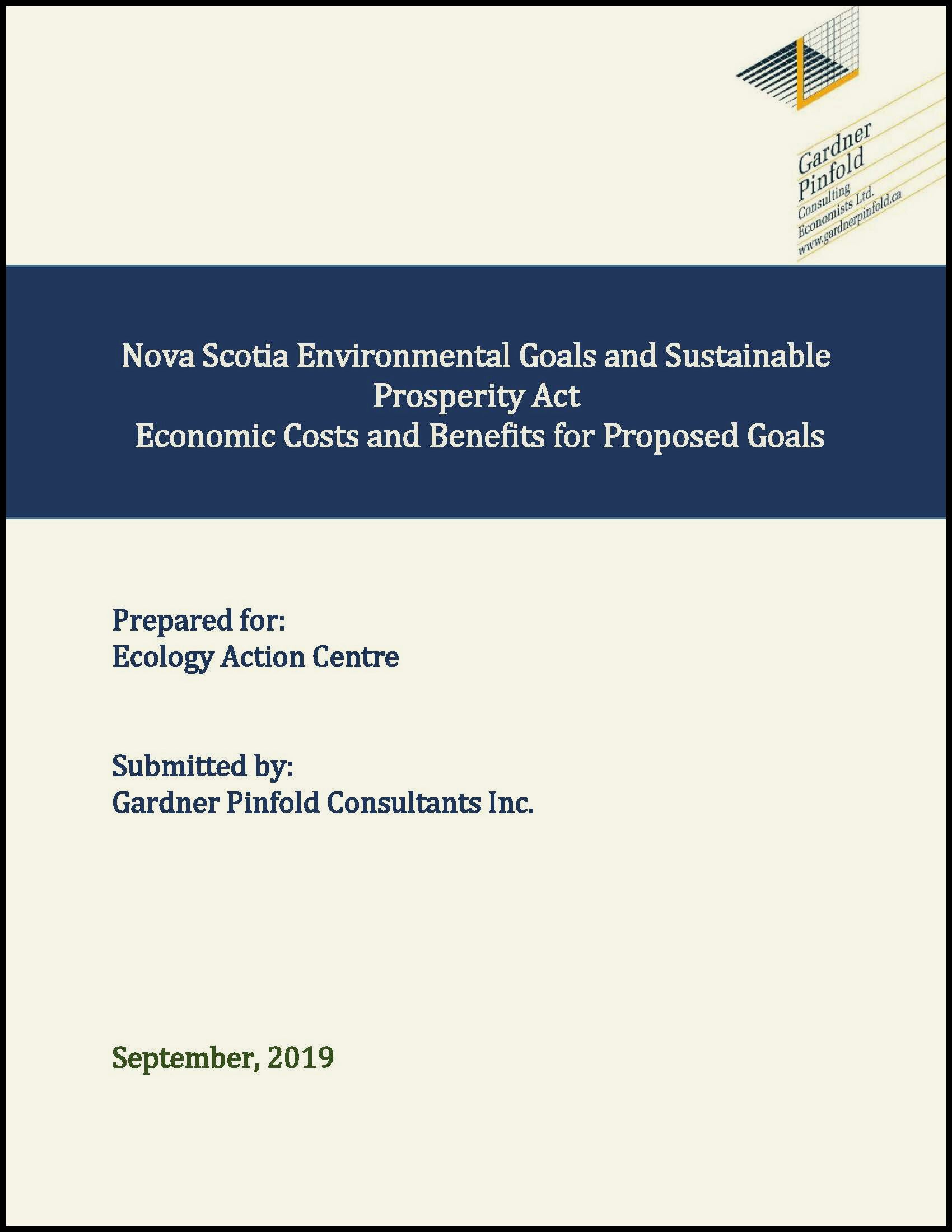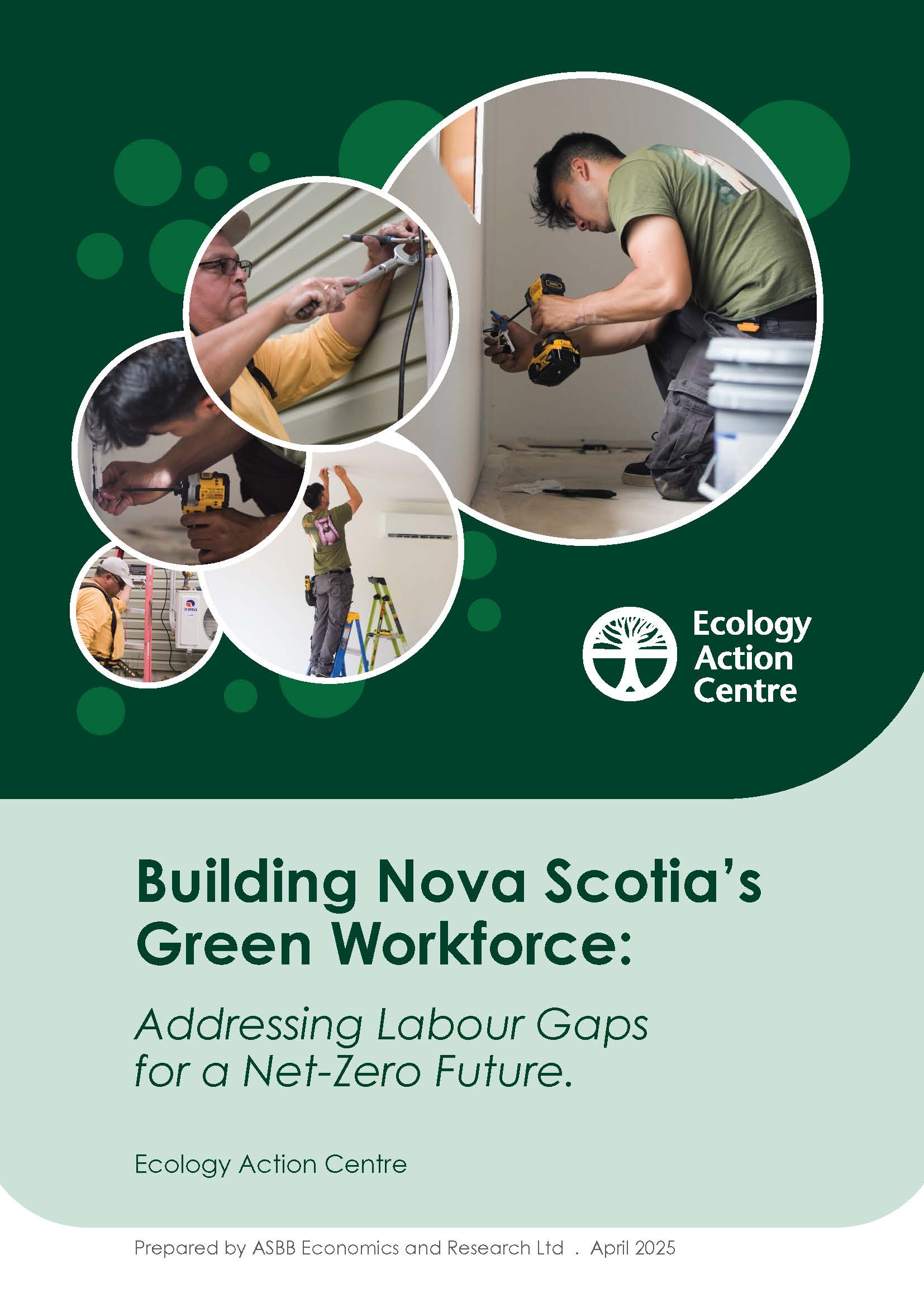Just Transition is not a fixed set of rules, but a vision and a process based on dialogue and an agenda shared by workers, industry, and governments that need to be negotiated and implemented in their geographical, political, cultural, and social contexts. It is implemented with a set of guiding principles, such as the International Labour Organization's guidelines for a just transition. The Ecology Action Centre (EAC) supports this definition and the philosophy behind it.
Green Jobs
Green Jobs
Green jobs are jobs that directly or indirectly contribute to the reduction of greenhouse gas emissions and other pollutants, or jobs that protect water, air, lands and soil. This transition provides an exciting opportunity to build Nova Scotia’s economy and create good, sustainable jobs here at home.
Green jobs may also address the inequities of climate change impacts and help communities become self-sustaining, while coping with, adapting to or remediating the consequences of a changing climate. These jobs are invaluable in the fight against the climate and biodiversity crises, and can be the building blocks of a vibrant, sustainable economic future for Nova Scotia. 
2019 Report Findings
Transitioning to a net-zero economy provides exciting opportunities for the workforce. We commissioned a green jobs report in 2019 identifying a just transition to the green economy that prevents individuals from being left behind. A major finding of the report was that 15,000 new jobs per year are possible by 2030 in the green economy. Read the report here.
2025 Report Findings
In 2025, we commissioned a second report to delve deeper into what these jobs will look like. Building Nova Scotia’s Green Workforce: Addressing Labour Gaps for a Net-Zero Future looks at building retrofits, which are crucial in reaching greenhouse gas reduction targets. Within this area of energy efficiency, the report identifies which jobs will see the most growth, as well as barriers faced by workers entering the sector.
The report found that over 35 per cent of people working in energy efficient retrofits are over 55 years old, which will lead to thousands of vacancies in the next five years and provide huge opportunities for diverse and young skilled workers to enter the sector. By 2030 Nova Scotia could see 7,010 vacant carpenter positions and 4,292 vacant electrician positions. At the same time, there will be a boost in HVAC sector jobs by 2031, increasing to 1,509.
One way to make sure we have enough workers for the demand of this work is to support more disabled, gender-diverse and BIPOC (Black, Indigenous and People of Colour) workers entering these professions by removing barriers to their participation. Building Nova Scotia’s Green Workforce provides recommendations for improving diversity and education within the skilled trades. Read our infographic here, policy recommendations here, a summary report here and the full report here.
Find the appendices linked below:
- Appendix 1: Methodology
- Appendix 2: Literature Review
- Appendix 3: Job Forecasts
- Appendix 4: Pathways to Education
- Appendix 5: Key Findings
- Appendix 6: Jurisdictional Scan
The 250-page report, including all appendices, can be found here.
Nova Scotia Clean Energy Deep Canvassing Project
Nova Scotia Clean Energy Deep Canvassing Project
In 2023, the Ecology Action Centre (EAC) launched the campaign "It's in Our Power" to build support for 100 per cent clean energy in Nova Scotia. As part of this campaign, the EAC implemented a deep canvassing pilot project in the community of Stellarton. This community engagement approach was inspired by the successful deep canvassing initiative conducted by Neighbours United in Trail, B.C., and was used by the EAC to garner support for Nova Scotia's transition to a 100 per cent clean electricity sector.
The EAC's deep canvassing project took place throughout 2023. After assembling an initial team of passionate volunteers, the project kicked off with skill-building workshops focused on storytelling, active listening and script development. Outreach efforts took place in Stellarton to understand the primary concerns, issues and barriers people may have in the community regarding the clean energy transition. This “deep listening” outreach helped us on develop a meaningful, location-specific deep canvassing script which we then used to have meaningful conversations with 50 individuals.
Check out what we learned in the Energy Transition Deep Canvassing Pilot Project Report.
What is deep canvassing?
Deep canvassing is an innovative approach to engaging with individuals and shifting their opinions on specific topics. It involves using empathetic conversations that foster trust and create personal connections between the canvasser and the participant. Unlike traditional methods that often lead to polarization, deep canvassing encourages active listening and meaningful dialogue, allowing participants to reflect on their opinions and gain a better understanding of the topic at hand. This approach has been proven successful in numerous social justice movements including marriage equality and transgender rights in the United States and is now being used to promote messaging around climate change.


